Gelatin Benefits: 7 Science-Backed Health Perks
Find out how this protein-based product benefits your health in ways you never thought of.
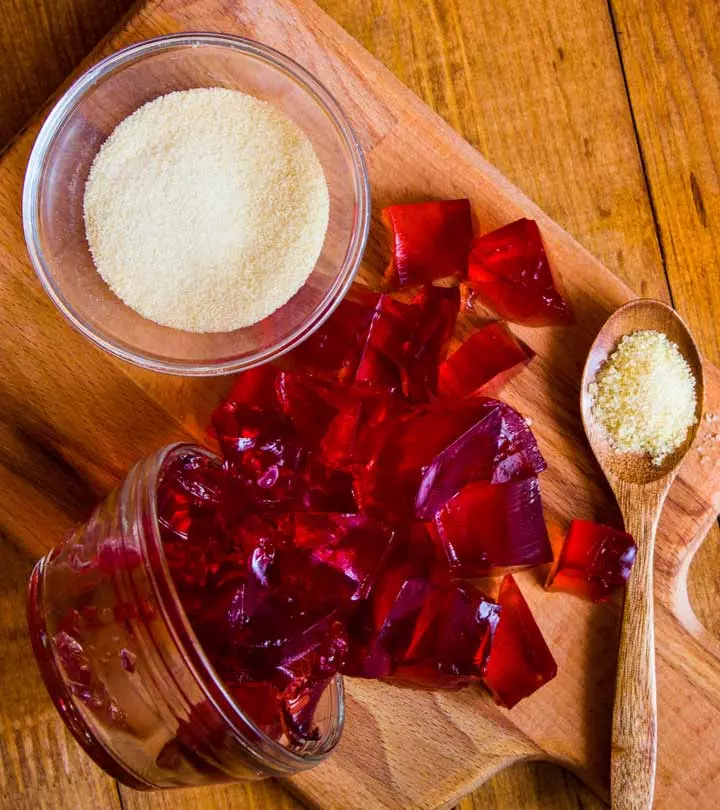
Image: Shutterstock
What do cakes, puddings, and ice cream have in common? If you guessed milk and sugar, you’re right. In addition to these ingredients, a very special substance called gelatin is commonly used in the preparation of these dishes. Gelatin is also one of the main ingredients in jello that you are so dearly fond of. Artisanal bakers who bake exotic cakes also use gelatin to create ribbons and other decorations. So what is gelatin and what are its benefits and uses? Keep reading to find out!
 Know Your Ingredient: Gelatin
Know Your Ingredient: GelatinWhat Is It?
A translucent, colorless, and flavorless food ingredient made from animal collagen.
What Are Its Benefits?
Helps improve bone mineral content, keeps the skin hydrated, and improves memory function.
Who Can Use It?
Those who want to lose weight and increase their bone density.
How Often?
Between 8 and 12 grams per day.
Caution
Some people may experience digestive issues or allergic reactions. It is important to consult with a healthcare provider before consuming it.
In This Article
What Is Gelatin?
Gelatin is a protein-based product that is commonly used in baking and confectionery as a stabilizing agent.
It is derived from collagen that is obtained from boiling the bones, joints, and connective tissues of animals (pigs and cows mostly). Apart from being used in food as a stabilizing ingredient, gelatin is also used in some skincare and hair care products.
Since gelatin is generally derived from animals, it is not vegan. However, there are a few alternatives to gelatin that are not made from animal tissue. Find out what they are in the next section.
Key Takeaways
- Gelatin is usually derived from the bones of animals like pigs and cows.
- Vegan-friendly gelatin alternatives like pectin are also available in the market.
- Gelatin is 100% protein and contains zero carbs or fat, which may help lose weight.
- It is also used in skin and hair care products, owing to its rich collagen content.
Alternatives To Gelatin
Since gelatin generally is made from pig and cow bones, it is not considered to be kosher or halal. Fortunately, there are plant and fruit-based alternatives that are vegan and can be used as a substitute to their meat-based counterpart.

- Agar-agar
This variety of gelatin is derived from cooked and pressed seaweed. Seaweed is boiled until it becomes a gel-like consistency, which is later pressed and dried. Once it dries, it is crushed into a fine or flaky powder. You can use agar-agar as a direct substitute for regular gelatin in most of your recipes. However, if your recipe requires citrus fruits like lemons and oranges, you will need to use double the amount required.
- Carrageen
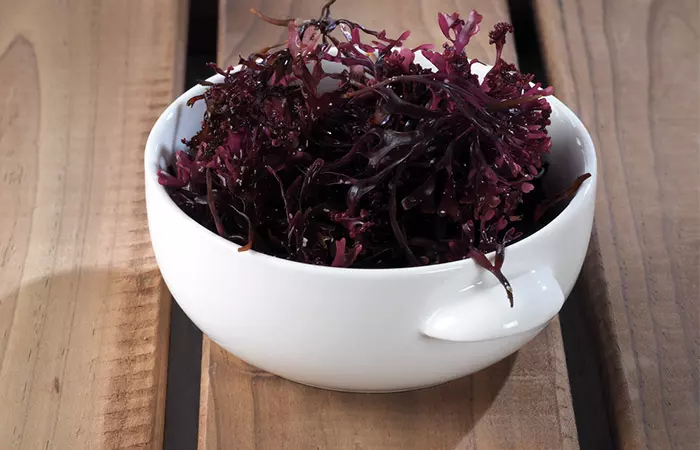
This is another variety of vegetarian gelatin that is also made from seaweed (Irish moss).
- Pectin
Pectin is fruit-based gelatin that is commonly found in citrus fruits. It is a commonly found ingredient in fruit-based yogurt, that helps enhance the flavor and mouthfeel. It is also used in homemade jams and jellies.
You can choose any one of these three varieties of gelatin and add them to your recipe. Now let us see how nutritious gelatin is, in the next section.
Nutrition Values Of Gelatin
Gelatin is primarily composed of protein, specifically collagen, a key building block of skin, bones, and connective tissues. It is low in carbohydrates, fats, and sugars, ideal for those looking to boost their protein intake without adding extra calories. This unique nutritional profile makes gelatin a versatile ingredient that can be incorporated into various dietary plans, from ketogenic diets to high-protein regimens.
Nutritional value of gelation per 100g (1).
| Name | Value Per 100g |
Energy | 429kcal |
Protein | 100g |
Total Fat | 0 |
Carbohydrates | 0 |
Total Sugar | 0 |
Sodium | 0 |
From the above table, it is quite evident that gelatin is rich in protein and has zero sugar, fat, salt, and carbs. How exactly does this benefit your health? Find out in the next section.
Health Benefits Of Gelatin
Gelatin is rich in proteins, especially collagen and amino acids that benefit your health in numerous ways
(2). Let’s find out what some of these potential health benefits are:
- Good For Your Bones And Joints
Gelatin contains amino acids like glutamic acid that are known to improve bone health (3). Research on rats suggests that gelatin might be helpful in improving the bone mineral content, thereby strengthening the bones (4). However further studies are required to determine its effectiveness on human bones.
 Trivia
Trivia- Good For Your Skin And Hair

Gelatin is also a rich source of collagen that is beneficial for your skin health and hair. Studies suggest that collagen may help keep your skin hydrated and moisturized (5). Gelatin might also help increase hair mass and volume. A study on volunteers in the age group of 21-28 years revealed that those who received gelatin supplements saw a 30% increase in hair mass and volume (6). You can explore gelatin hair mask recipes with ingredients like egg yolk, honey, and more. Similarly, you may add nourishing ingredients like aloe vera to your DIY gelatin face masks.
Jacqueline, a blogger, shared how her skin and hair improved once she began consuming gelatin. She gushes, “My hair has gotten crazy thick. Crazy, I tell you. My hair was always fairly thin. Lately, though, it takes me twice as long to dry and style my hair. Maybe it’s just my imagination, but I’m thinking my hair is thicker since consuming gelatin. My nail strength and growth have also improved. My nails broke easily and now I couldn’t bite them off if I tried (i).”
- Might Benefit Brain And Memory Functions
Gelatin also contains an amino acid called glycine that is known to improve memory function. According to a study, consuming glycine significantly improves the memory of young and middle-aged people (7). The study also suggests that it may help benefit those who are diagnosed with schizophreniai A mental disorder that makes a person interpret reality abnormally and impairs their capacity to think, feel and behave appropriately. and Parkinson’s diseasei A chronic disorder in which parts of the brain are damaged, affecting the nervous system and the body parts controlled by the nerves. .
There is a small amount of research to suggest that glycine present in gelatin might also be useful in relieving the symptoms of OCD and body dysmorphic disorderi A mental health disorder where an individual spends a lot of time worrying over flaws in their appearance. (BDD) (8).
- May Assist In Weight Loss
Gelatin might be helpful in losing weight as it is rich in protein and contains no carbs or fat. Studies suggest that consuming gelatin releases a hormone called ghrelin that makes you feel full and thereby makes you want to eat less (9). Studies have also shown that a high protein diet helps lower fat levels that might lead to weight loss (10).
- Might Help You Sleep Better

Glycine present in gelatin may have therapeutic effects that may help improve your sleep. Research suggests that oral administration of 3 grams of glycine before bedtime may help improve sleep and reduce sleepiness and fatigue during the daytime. Glycine might also help reduce your core temperature and increase the duration of REM sleep (rapid eye movement) (11).
- Might Improve Your Digestive Health
Gelatin contains glutamic acid that gets converted to glutamine when absorbed by your body. Glutamine is known to strengthen the lining of your gut wall by reducing its permeability and protecting it from bacterial infection. It may also help reduce inflammation in your gut (12).
- Might Slow Down The Growth Of Cancer
Studies on mice have shown that gelatin obtained from pigskin might reduce the size of cancerous tumors and increase life span (13). Further research is required to prove its effectiveness on humans.
These potential health benefits of gelatin make it a good addition to your diet. Let us see if there are any side effects to eating gelatin.
Allergies And Adverse Effects
When it comes to allergies, studies suggest gelatin may cause allergic reactions to certain vaccinations that contain gelatin as a stabilizing agent (14). A report by the CDC suggests measles vaccinations that used gelatin as a stabilizing agent may have allergic reactions such as anaphylactic shocki It is the outcome of a strong allergic reaction that lowers blood pressure, narrows the airway, and makes breathing difficult. (15). In the same report, the CDC also states that only a single case of such a reaction has been reported in the USA to date. Further research is required to establish a link between gelatin and its side effects on certain vaccinations. The USFDA has regarded gelatin to be generally safe for consumption (16).
 Trivia
TriviaHaving understood the benefits and side effects of gelatin, it is now time to learn how to prepare gelatin at home. To make gelatin at home, you can read about collagen-rich foods like pork and chicken. Let’s learn more about it in the next section.
How To Prepare Gelatin At Home
Gelatin can be prepared using the bones and ligaments of various animals. However, pork, beef, and chicken bones are the most commonly used.
Here is how you can prepare gelatin at home.
Ingredients Required
- 4-5 pounds of beef, pork, or chicken bones and connective tissue.
- 1 tablespoon of salt
- 2-3 liters of water
Preparation
- Transfer all the bones and connective tissue to a large pot or slow cooker and add salt.
- Pour enough water so that the bones are completely covered.
- Bring the contents to a boil and let it cook for 5-7 minutes.
- Reduce the heat and let it simmer for a minimum of 48 hours.
- Strain the liquid with a sieve and allow it to cool.
- Once the liquid cools, it will begin to solidify into gelatin.
Making gelatin at home is fairly simple, but it can be a time-consuming process. If you don’t have the time to make gelatin from scratch, you can buy it from a grocery store. However, if you have made gelatin from scratch, you need to know how to store and preserve it. Learn more about this in the next section.
Tips For Storing Gelatin
Freshly prepared gelatin can be stored for up to a week in the fridge, and up to a year when frozen. You can also add fruit flavoring agents to freshly prepared gelatin and make ice cubes for later use.
Let’s put that gelatin to good use with some easy recipes.
Gelatin Recipes
Here are a few simple recipes you can try using freshly made or store-bought gelatin.
The first recipe is for homemade jello
1. Homemade Jello
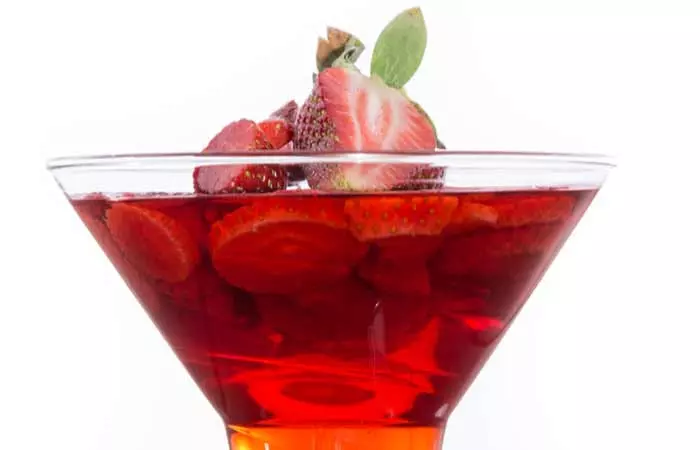
Ingredients Required
- 4 cups of fruit juice of your choice or fruit concentrate
- 2 tablespoons of unflavoured gelatin powder
- 2 tablespoons of honey or agave
Preparation
- To a saucepan add 3 cups of the fruit juice/concentrate and gelatin powder and mix well.
- Allow it to settle for 3-5 minutes. The mixture should look like a thick granular paste, similar to apple sauce.
- Now add the remaining juice/concentrate and heat it on medium flame until it is just about to boil.
- Remove from the heat and add honey/agave and stir well to dissolve the sweetener
- Pour the contents into an 8×8 baking tray or individual shot glass.
- Refrigerate for 4 hours to set and enjoy.
Knowing about jello’s nutritional benefits will give you an edge. Information like its high sugar content and poor protein and fiber (along with fewer vitamins and minerals) can help you decide whether to use it, especially if you are diabetic or cutting down on sugar.
The next recipe is for an easy creamy gelatin dessert.
2. Creamy Gelatin Dessert

Ingredients Required
- 6 ounces of lemon-flavored gelatin
- 4 cups of water
- 2 cups of mini marshmallows
- 4 ripe bananas, sliced
- 20 ounces of canned pineapple
- ½ cup of sugar
- 2 tablespoons of all-purpose flour
- 2 tablespoons of butter
- 1 cup of heavy whipping cream
- ½ cup of chopped walnuts
Preparation
- In a saucepan, boil 2 cups of water and add gelatin powder.
- Remove from heat and stir until gelatin has dissolved.
- To this, add marshmallows and stir until they are melted.
- Now add the banana, crushed pineapple (keep aside the reserved juice), and 2 cups of cold water.
- Pour this mixture into a 13×9 inch pan and set it aside to chill.
- In a separate saucepan, add sugar and all-purpose flour and gradually stir in the reserved pineapple juice
- Add butter and bring the mix to a boil.
- Cook and stir for 2 minutes on medium heat.
- Remove from heat and set it aside to cool down to room temperature.
- In a small bowl add heavy whipping cream and whisk until peaks form.
- Fold this mixture into the pineapple juice and spread it on top of the set gelatin mix.
- Sprinkle walnuts on top and let it chill in the fridge for 1-2 hours.
- Take it out after 2 hours and enjoy!
3. Gelatin Gummy Bears
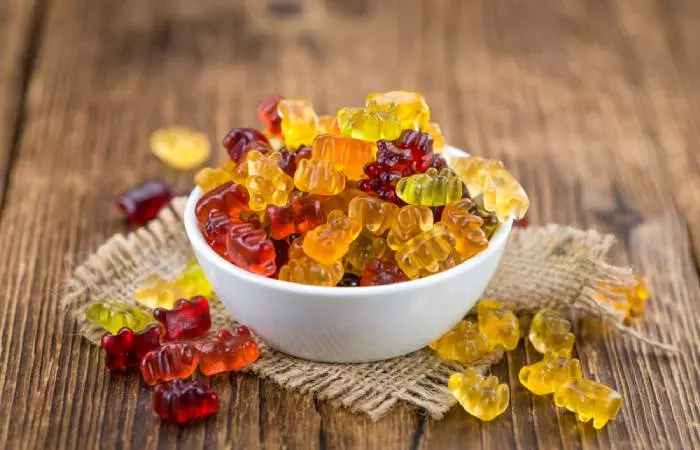
Ingredients Required
- ½ cup of preferred fresh fruit juice
- 3 tablespoons of unflavored gelatin
- 2 tablespoons of honey
- Gummy bear mold
Preparation
- Pour the fruit juice into a pan and slowly sprinkle the gelatin over it in an even layer. Set it aside for a few minutes, allowing the gelatin to bloom.
- Heat a pan over a low flame and stir constantly until the gelatin is completely dissolved. Do not boil the mixture.
- Add in the honey and stir until well combined. Taste to check if the sweetness is fine, and add a little more if needed to adjust.
- Remove the pan from the heat and allow it to cool for a few minutes.
- Pour the mixture into the gummy bear mold. You may use a dropper for neat precision.
- Refrigerate the mold for about 30-45 minutes.
- Once the gummy bears are set, remove them from the molds and enjoy them.
Try these recipes at home and enjoy them with your friends and family.
Infographic: 5 Reasons For Consuming Gelatin
Gelatin is commonly used as a stabilizing agent in baking and confectionery items. It is also used in skin care and hair care products due to its high protein content. Check out the infographic below to learn about the benefits of using gelatin to improve your health and wellness.
Some thing wrong with infographic shortcode. please verify shortcode syntaxIn conclusion, gelatin is a protein-based product that is obtained from boiling bones and connective tissues of animals. Vegans can use plant-based gelatin alternatives such as aga-agar, pectin, and carrageenan. Gelatin contains amino acids such as glycine and glutamic acids that give it numerous potential health benefits. It may also help maintain joint health, nail health, hair health, skin health, improve digestion, and assist in wound healing. The US FDA deems gelatin as generally safe to consume.
Frequently Asked Questions
How much gelatin should I take daily?
Eating up to 10 grams of gelatin for up to six months is considered safe.
Can gelatin tighten skin?
Gelatin may help promote skin elasticity and firmness. It may also help reduce the appearance of stretch marks.
Which is better: gelatin or collagen?
The intake of collagen in supplement form is better when compared with gelatin. At the same time, gelatin is great for preparing desserts or jellies.
Is gelatin anti-aging?
Gelatin may help reduce the signs of aging. However, limited research is available in this regard.
Illustration: Health Benefits And Side Effects Of Gelatin
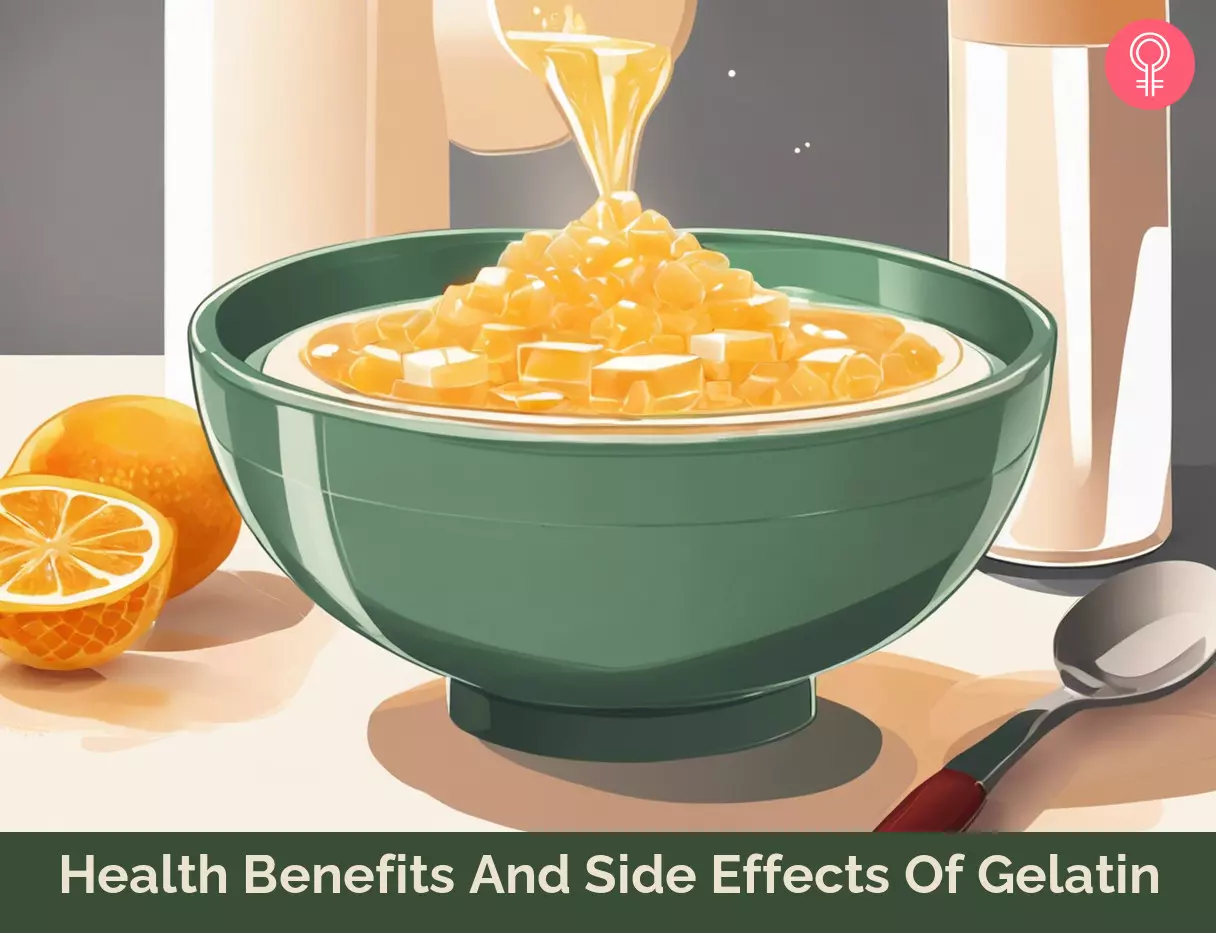
Image: Stable Diffusion/StyleCraze Design Team
Learn more about the potential benefits of gelatin for healthy nail and hair growth. The video below talks about its nutrients, tips, and possible effects on strengthening and nourishing your hair and nails.
Personal Experience: Source
StyleCraze's articles are interwoven with authentic personal narratives that provide depth and resonance to our content. Below are the sources of the personal accounts referenced in this article.
i. Gelatin: Its Many Benefits (with personal experience) and Ways to Consumehttp://livinthecrunchylife.blogspot.com/2013/05/grass-fed-gelatin-its-many-benefits.html
References
Articles on StyleCraze are backed by verified information from peer-reviewed and academic research papers, reputed organizations, research institutions, and medical associations to ensure accuracy and relevance. Read our editorial policy to learn more.
- Gelatin
https://fdc.nal.usda.gov/fdc-app.html#/food-details/498990/nutrients - Gelatin: A Comprehensive Report Covering Its Indispensable Aspects
https://www.researchgate.net/publication/308694247_Gelatin_A_comprehensive_report_covering_its_indispensable_aspects - Amino Acid Intakes Are Associated With Bone Mineral Density and Prevalence of Low Bone Mass in Women: Evidence From Discordant Monozygotic Twins
https://pubmed.ncbi.nlm.nih.gov/26334651/ - Ingestion of Gelatin Has Differential Effect on Bone Mineral Density and Body Weight in Protein Undernutrition
https://www.researchgate.net/publication/11987523_Ingestion_of_Gelatin_Has_Differential_Effect_on_Bone_Mineral_Density_and_Body_Weight_in_Protein_Undernutrition - The Effect Of Oral Collagen Peptide Supplementation On Skin Moisture And The Dermal Collagen Network: Evidence From An ex Vivo model And Randomized Placebo-Controlled Clinical Trials
https://onlinelibrary.wiley.com/doi/full/10.1111/jocd.12174 - Effect Of Gelatin-Cystine Ano Serenoa Repens Extract On Free Raoicals Level Ano Hair Growth
https://www.researchgate.net/publication/294672324_Effect_of_gelatin-cystine_and_serenoa_repens_extract_on_free_radicals_level_and_hair_growth - Beneficial Effects Of Glycine (bioglycin) On Memory And Attention In Young And Middle-Aged Adult
https://pubmed.ncbi.nlm.nih.gov/10587285/ - High-Dose Glycine Treatment Of Refractory Obsessive-Compulsive Disorder And Body Dysmorphic Disorder In A 5-Year Period
https://www.ncbi.nlm.nih.gov/labs/pmc/articles/PMC2825652/ - Oral Ingestion Of A Hydrolyzed Gelatin Meal In Subjects With Normal Weight And In Obese Patients: Postprandial Effect On Circulating Gut Peptides Glucose And Insulin
https://pubmed.ncbi.nlm.nih.gov/18319637/ - The Effects Of High Protein Diets On Thermogenesis Satiety And Weight Loss: A Critical Review
https://pubmed.ncbi.nlm.nih.gov/15466943/ - The Sleep-Promoting And Hypothermic Effects Of Glycine Are Mediated By Nmda Receptors In The Suprachiasmatic Nucleus
https://www.ncbi.nlm.nih.gov/labs/pmc/articles/PMC4397399/ - Glutamine: Role In Gut Protection In Critical Illness
https://www.researchgate.net/publication/6874210_Glutamine_Role_in_gut_protection_in_critical_illness - In vivo anti-tumor activities of gelatin
https://pubmed.ncbi.nlm.nih.gov/19783967/ - Systemic Allergic Reactions To Gelatin Included In Vaccines As A Stabilizer
https://pubmed.ncbi.nlm.nih.gov/11135703/ - Update: Vaccine Side Effects Adverse Reactions Contraindications and Precautions
https://www.cdc.gov/mmwr/pdf/rr/rr4512.pdf - Food Additive Status List
https://www.hfpappexternal.fda.gov/scripts/fdcc/index.cfm?set=FoodSubstances
Read full bio of Rowinda Dimech
Read full bio of Varsha Patnaik
Read full bio of Ravi Teja Tadimalla
Read full bio of Payal Karnik







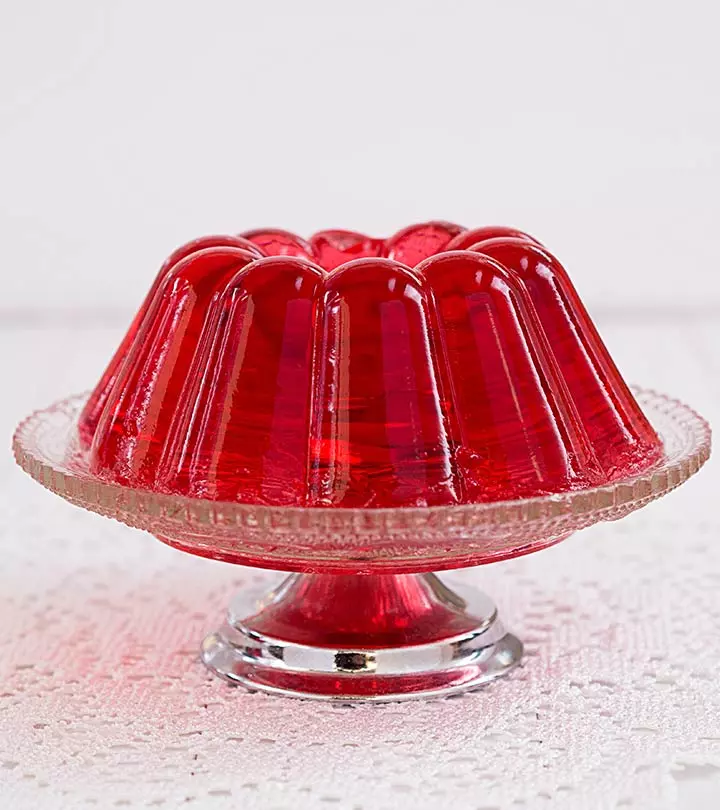
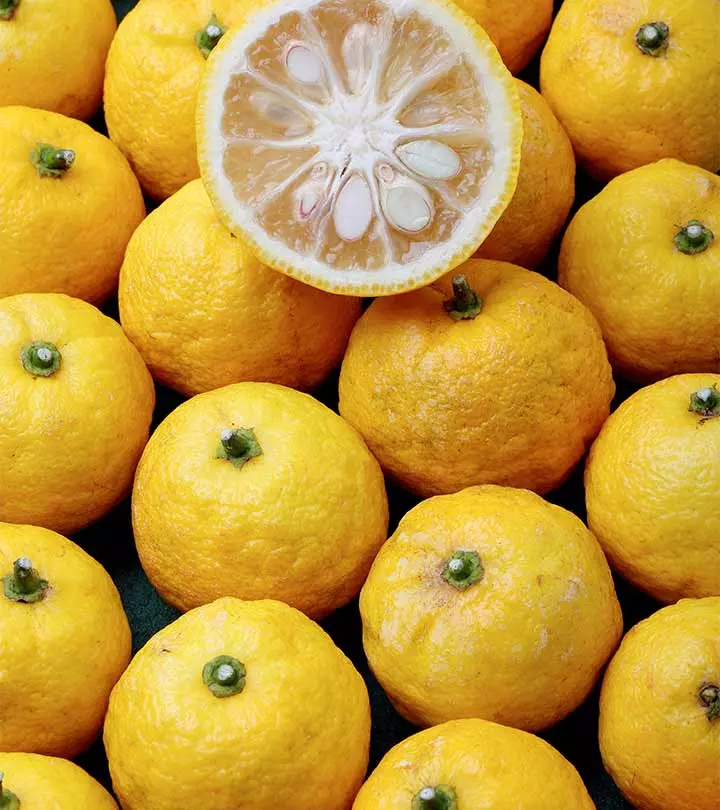
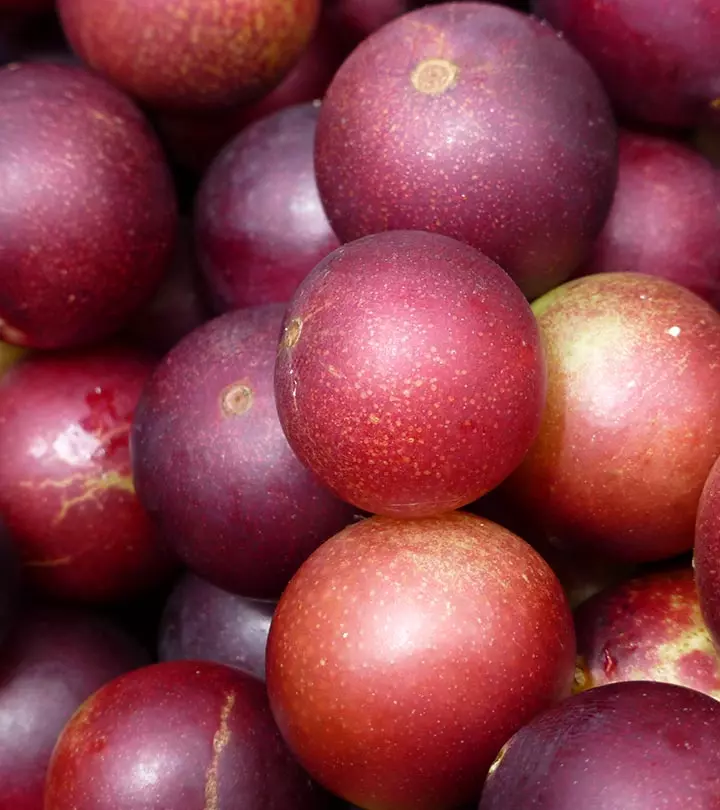
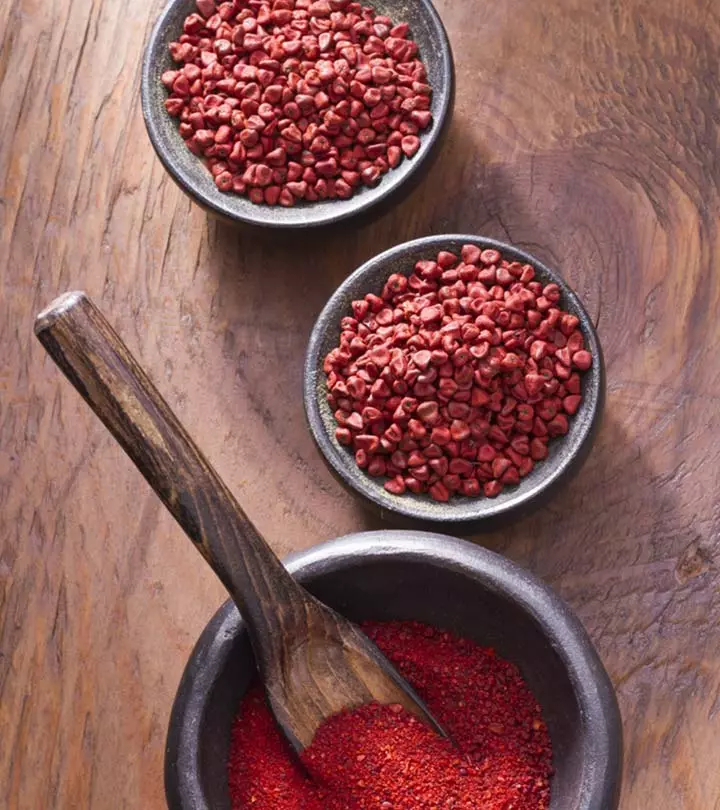
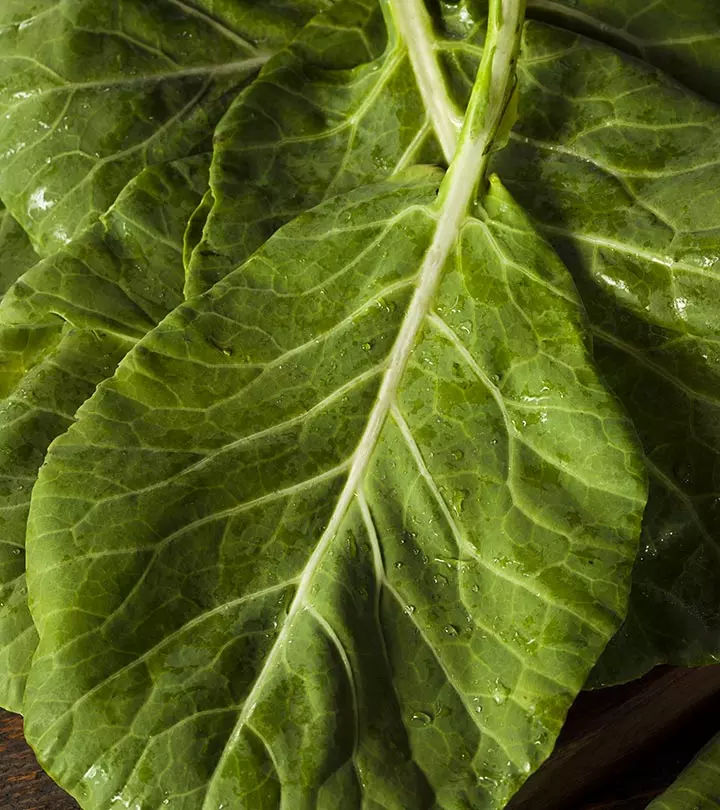
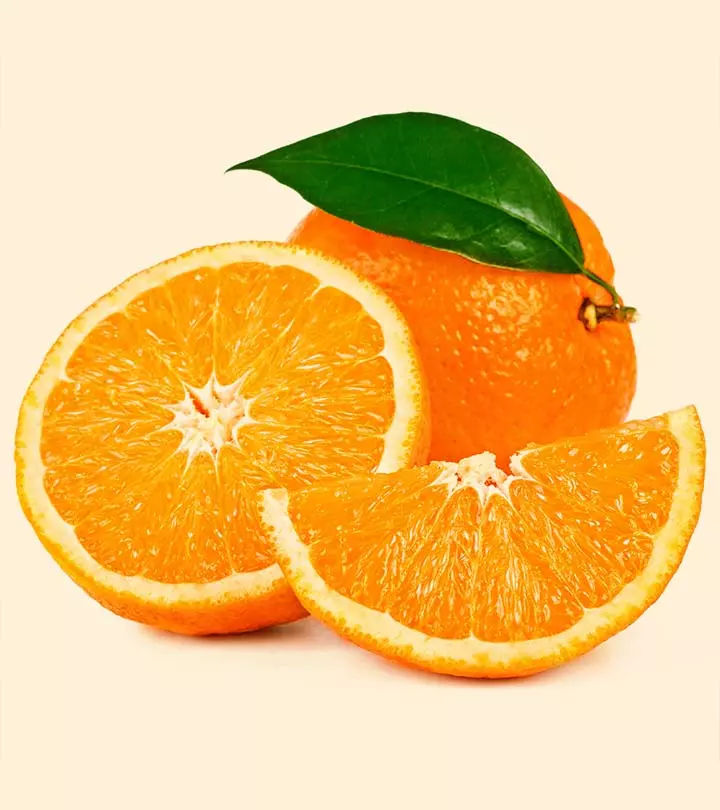
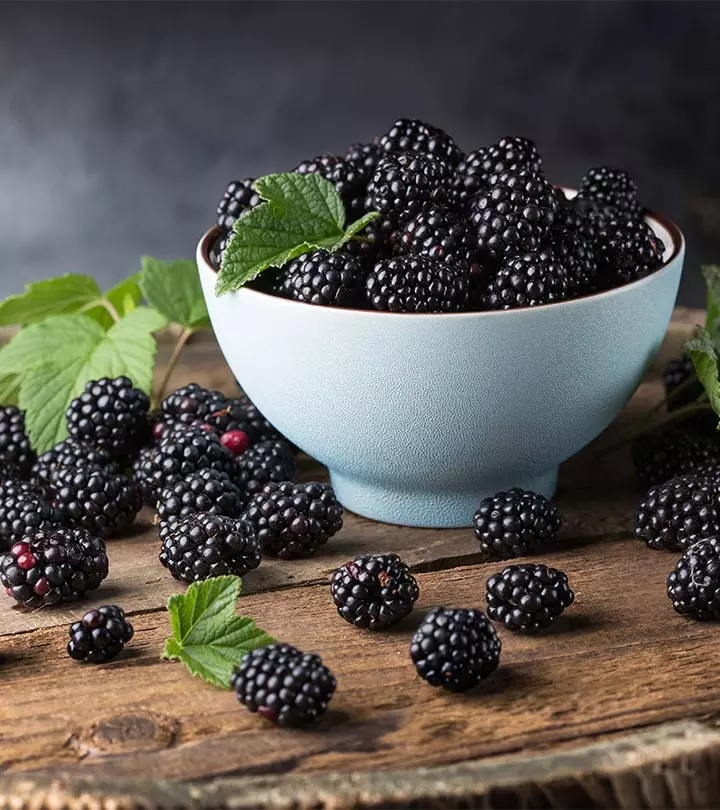
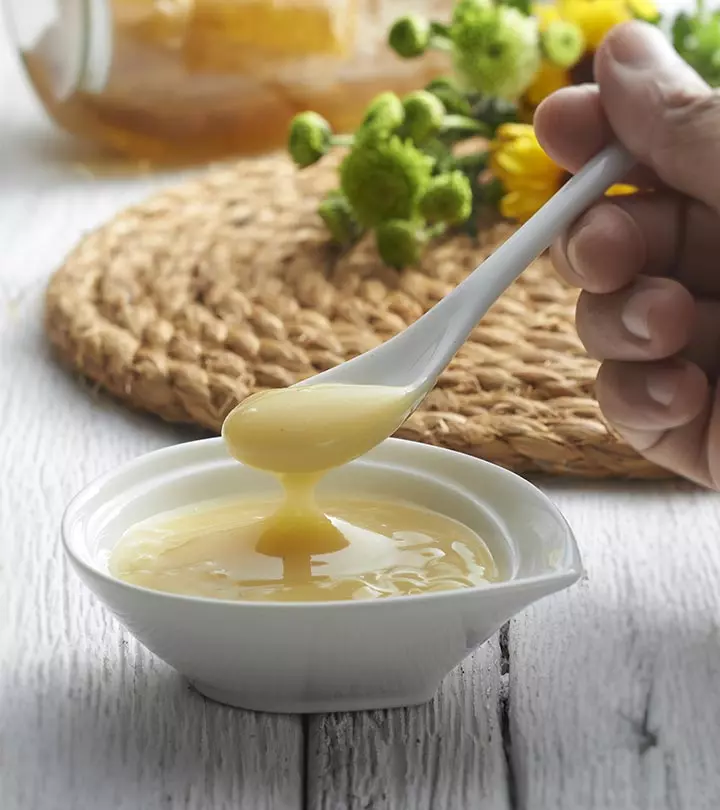
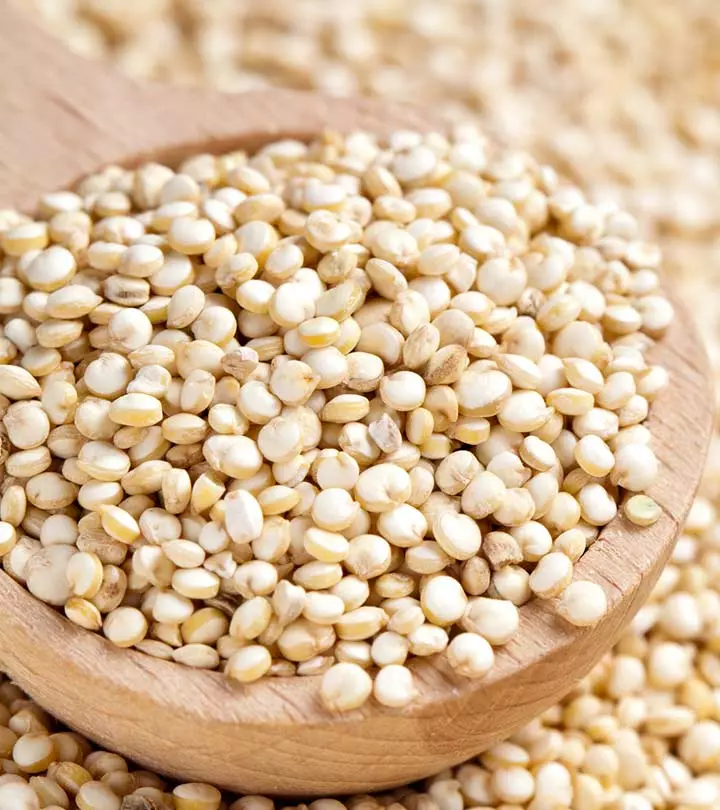

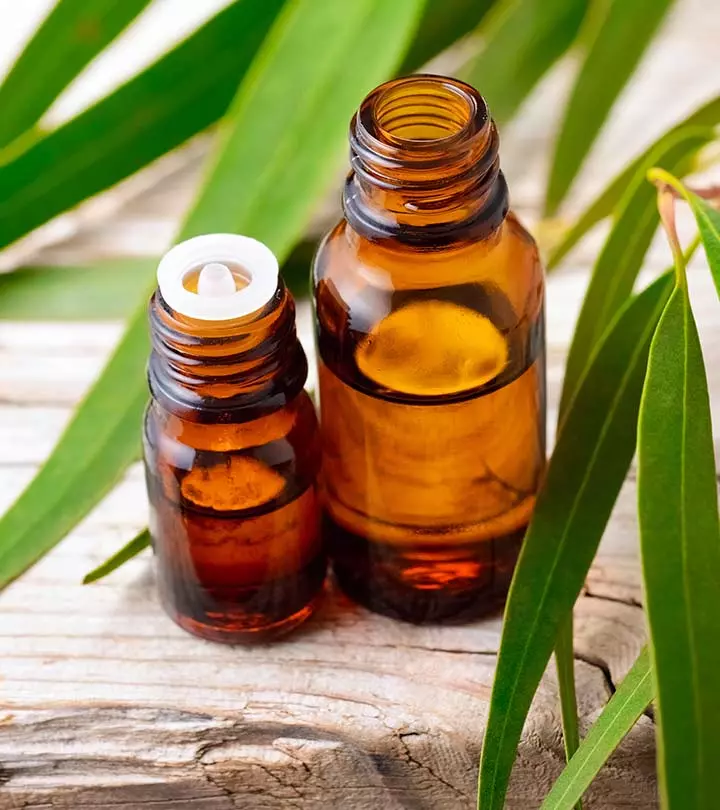


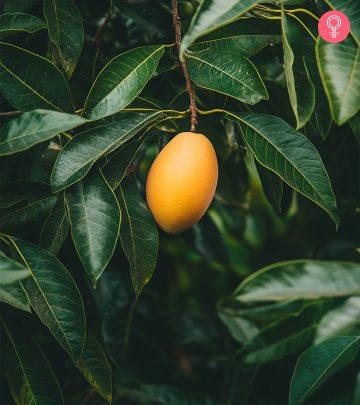
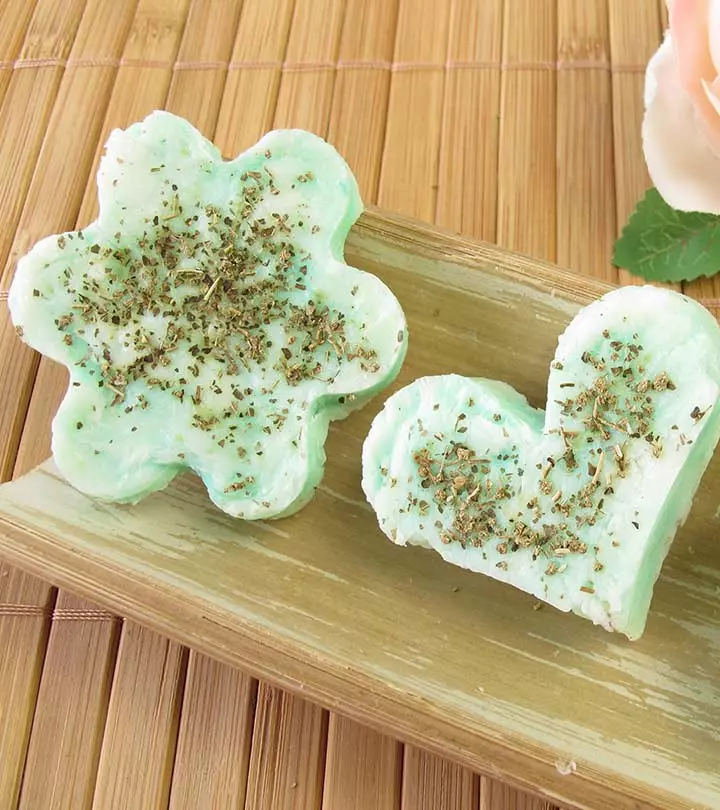

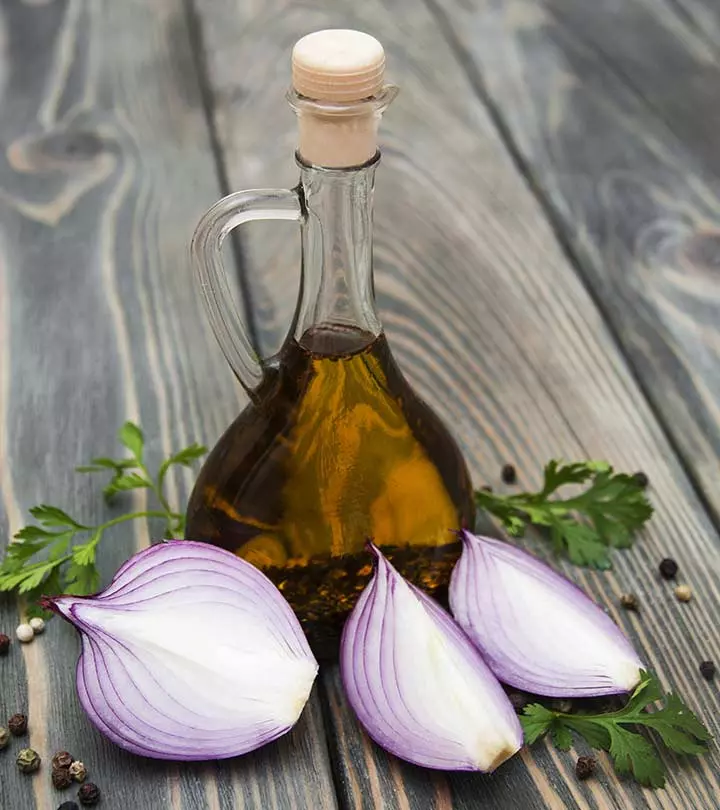


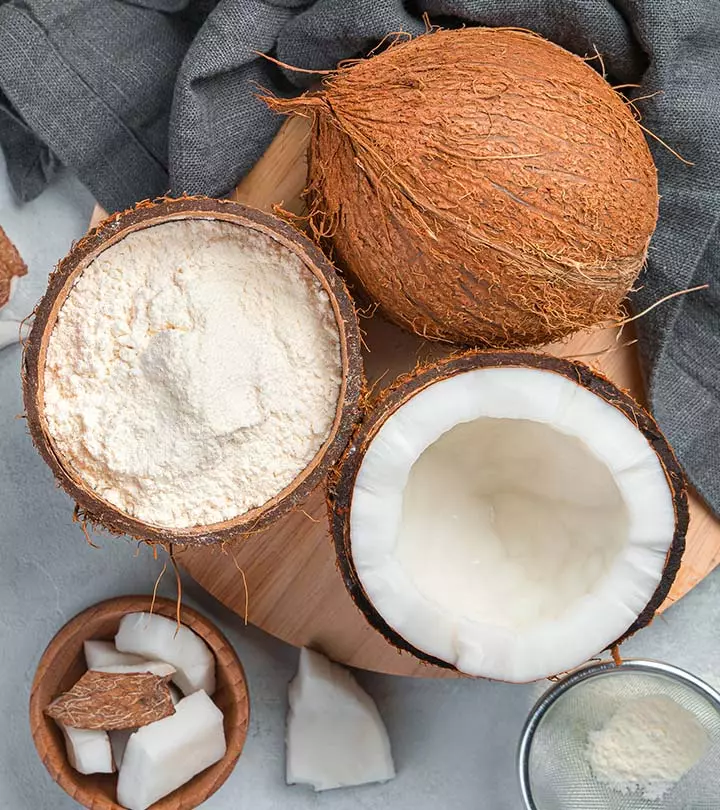
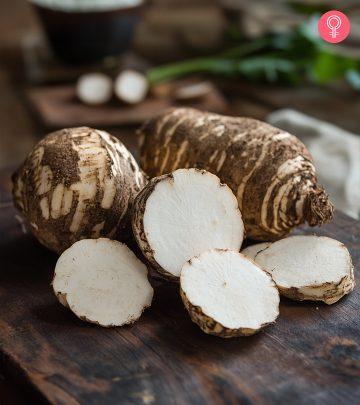
Community Experiences
Join the conversation and become a part of our empowering community! Share your stories, experiences, and insights to connect with other beauty, lifestyle, and health enthusiasts.